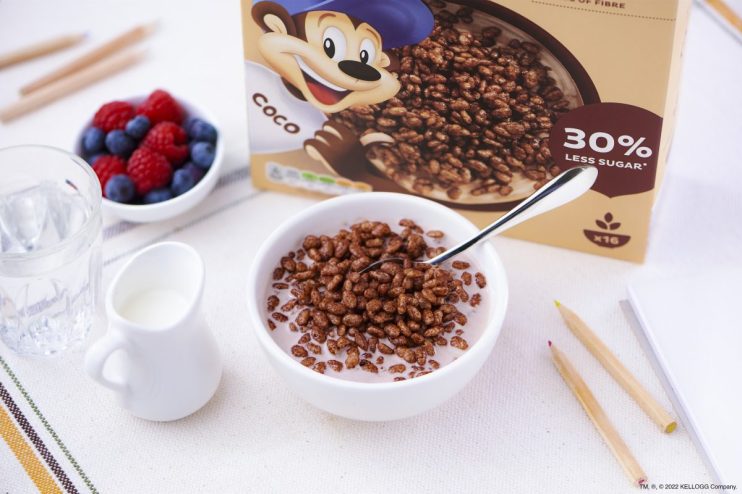Kellogg’s to battle government’s sugar restrictions in court

Cerealmaker Kellogg’s is taking the government to court over new legislation that will prohibit some high sugar products being prominently displayed in stores.
The food titan argued the government’s formula should factor in the nutritional value of milk, which it says is eaten with cereal in the vast majority of cases.
From October, retailers will face restrictions on food and drink high in fat, salt or sugar in England. The new regulations come as part of ministers’ bid to tackle childhood obesity.
Some items – including Kellogg’s Crunchy Nut Corn Flakes and Fruit and Fibre – will be banned from being on display in store areas such as check outs, entrances, aisle ends. There will also be restrictions with displaying products online too.
Kellogg’s is pushing for a change in the formula, as included added milk in the calculations would slash the proportion of sugar and salt relative the overall serving.
Chris Silcock, Kellogg’s UK managing director, said: “We believe the formula being used by the Government to measure the nutritional value of breakfast cereals is wrong and not implemented legally. It measures cereals dry when they are almost always eaten with milk.
“All of this matters because, unless you take account of the nutritional elements added when cereal is eaten with milk, the full nutritional value of the meal is not measured.”
Ahead of a hearing at the Royal Courts of Justice, a department of health and social care spokesperson said that the promotion restrictions were “an important part” of a strategy to halve childhood obesity by 2030.
The department pointed out that breakfast cereals contribute seven per cent to the children’s average daily free sugar intakes.
According to the BBC, the government is keen to succeed against Kellogg’s case, in an endeavour to deter other food manufacturers from making similar cases for reducing their own items’ fat, sugar and salt contents.
It is the first time the business is taking legal action of such kind in the UK, with Kellogg’s Silcock saying the firm “really didn’t want to have to do.”
He added: “We’ve tried to have a reasonable conversation with the UK government over the past twelve months about making this change, but to no avail.
“We’ve always been open and honest with people about what’s in our food and that’s why we feel we need to take this step.”
Rivals Nestlé and Weetabix are not planning to lodge similar cases, CityA.M. understands.
A spokesperson for Weetabix Food Company told CityA.M.: “Weetabix is committed to good nutrition and supporting informed consumer choices. We respect that families enjoy Weetabix in a wide variety of ways, from those that have them plain with milk, to those that add fruit, or even choose to butter them.
“We’re confident that our nutritional traffic lights are the most effective way of helping them make the right choices for themselves and their families.”
Sarah Riding, retail and supply chain partner at the law firm Gowling WLG, said: “While certain cereals are a concern where obesity is concerned, only a limited number contain high amounts of sugar at the purchase point.
“Perhaps a better approach would be to provide packaging advice about the health-related dangers of adding sugar to what is basically/ essentially a healthy product choice if customers avoid sweetening the product – creating a responsibility for brand owners to create warnings, something that would be a better option that than this far more extreme measure.”